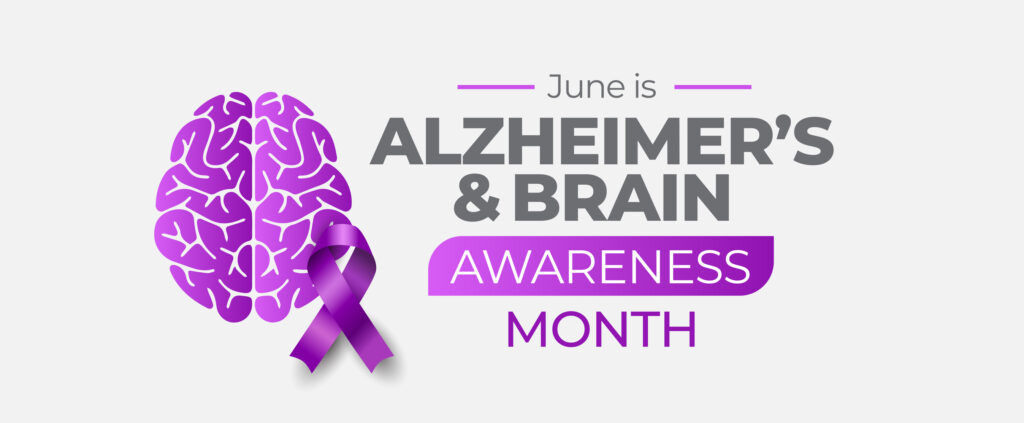June is Alzheimer’s and Brain Health Awareness Month and the perfect time to share facts about Alzheimer’s disease and other dementias that affect the brain.
Alzheimer’s disease is the most common cause of dementia, a general term for memory loss and other cognitive abilities serious enough to interfere with daily life. According to the Alzheimer’s Association, Alzheimer’s disease accounts for 60 to 80 percent of dementia cases. As a public health issue, it presents a significant challenge for individuals, families, and healthcare systems. Promoting Alzheimer’s awareness is crucial for early detection, intervention, and support for those affected by the disease.
One of the most important aspects of promoting Alzheimer’s awareness in public health is education. Many people are unaware of the early signs and symptoms of Alzheimer’s, which can lead to delayed diagnosis and intervention. By educating the public about the warning signs of Alzheimer’s, we can empower individuals and families to seek help at the earliest stages of the disease.
The National Institute of Aging (NIA) has many resources about Alzheimer’s disease, dementia, and brain health that you can share in your community. Organizations that work with older adults can use the evidence-based resources related to dementias developed by the Healthy People 2030 inititative.
Collaboration among healthcare professionals, community organizations, and governmental agencies is a cornerstone of our approach to promoting Alzheimer’s awareness. By pooling our resources and expertise, we can raise awareness, improve access to care, and support ongoing research. By prioritizing Alzheimer’s awareness, we can make a meaningful impact on the lives of those affected by the disease and work towards a future with better prevention, treatment, and care.
For more information about available resources for Alzheimer’s disease and dementia, visit the Alzheimer’s Association or the National Institute of Aging.

